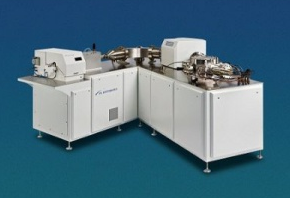Invited by Ian Bowen, the customer services manager of Nu Instruments Ltd and Professor Yaoling Niu from the university of Durham, Xiaohong Wang and Hongmei Gong went to UK for receiving Nu Plasma II MC-ICP-MS training and selecting the Ocean drilling rock samples. It’s 22 days from 17 September to 8 October, 2016.
Nu Instruments Ltd is a world famous company for multiple-collector inductively coupled plasma mass spectrometry. The Nu Plasma II MC-ICP-MS training started on 18Sept, and ended on 30 Sept. The training was majored on instrument operation, such as hardware constitution, working principle, use of software, daily operation and maintenance. It also contained the analysis and solution of the faults. We also learned the analysis methods and data processing methods of Sr- Nd-Pb-Hf isotopes, and even some non-traditional stable isotopes, for example U-Mg-Fe. MC-ICP-MS is necessary for the isotope geochemical study, which is widely applied in the field of geology and marine science. The training provided technical support for the running of Nu Plasma II in the laboratory of ocean lithosphere and mantle dynamics, and guaranteed the acquisition of high-quality isotope data in the future research.
Professor Yaoling Niu from Durham University has been repeatedly involved in ODP voyage, and has accumulated precious ocean drilling rock samples at the geological sample library in the Durham University. We selected a total of 856 samples, containing samples of ridge basalt, gabbro and abyssal peridotite collected from the Pacific, Atlantic and Indian Oceans, . These sample has great significance for the research of the dynamics of oceanic mantle. After a careful treatment of picking, packing, sorting, packaging, and detailed records for these precious samples, we carried them back to the IOCAS. Those samples will be analyzed in the laboratory of ocean lithosphere and mantle dynamics. The high-quality data to be obtained is essential to the study partial melting mechanism beneath ocean ridges and the publication of original SCI papers. This will not only raise the popularity of IOCAS, but will also develop the studies on the mid-ocean ridge dynamics and mantle dynamics in IOCAS.


